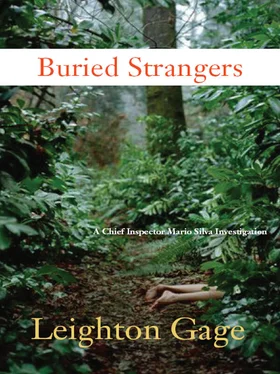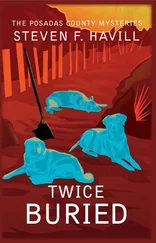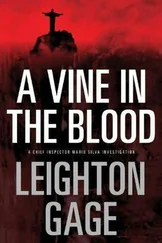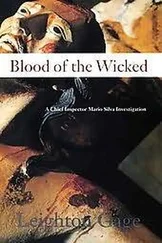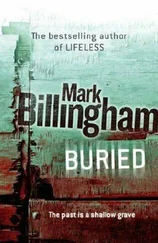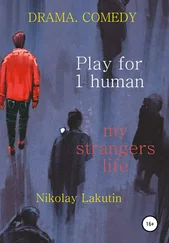Leighton Gage - Buried Strangers
Здесь есть возможность читать онлайн «Leighton Gage - Buried Strangers» весь текст электронной книги совершенно бесплатно (целиком полную версию без сокращений). В некоторых случаях можно слушать аудио, скачать через торрент в формате fb2 и присутствует краткое содержание. Жанр: Полицейский детектив, на английском языке. Описание произведения, (предисловие) а так же отзывы посетителей доступны на портале библиотеки ЛибКат.
- Название:Buried Strangers
- Автор:
- Жанр:
- Год:неизвестен
- ISBN:нет данных
- Рейтинг книги:4 / 5. Голосов: 1
-
Избранное:Добавить в избранное
- Отзывы:
-
Ваша оценка:
- 80
- 1
- 2
- 3
- 4
- 5
Buried Strangers: краткое содержание, описание и аннотация
Предлагаем к чтению аннотацию, описание, краткое содержание или предисловие (зависит от того, что написал сам автор книги «Buried Strangers»). Если вы не нашли необходимую информацию о книге — напишите в комментариях, мы постараемся отыскать её.
Buried Strangers — читать онлайн бесплатно полную книгу (весь текст) целиком
Ниже представлен текст книги, разбитый по страницам. Система сохранения места последней прочитанной страницы, позволяет с удобством читать онлайн бесплатно книгу «Buried Strangers», без необходимости каждый раз заново искать на чём Вы остановились. Поставьте закладку, и сможете в любой момент перейти на страницу, на которой закончили чтение.
Интервал:
Закладка:
It wasn’t as horrific a sight as Hector had been expecting. Most of the bodies were no more than skeletons, piles of bones crowned by grinning skulls.
After they’d given each of the remains a token inspection, Gilda knelt down and stroked one of the smaller skulls with her forefinger. She did it gently, as if she were caressing a cat.
“The victims are of both sexes and varying ages,” she said. “Children, like this one, were never buried alone. Sometimes they were interred with one adult, sometimes with two. When it was one, the adult was always a female. When it was two, there was one of each sex.”
“Family groups?” Silva said. “Mothers with their children? Mothers and fathers with their children?”
“That would seem to be a logical conclusion, but you know how my boss-”
“Hates speculation. Yes, I know.”
“We’re doing DNA testing.”
“Good. What else can you tell us?”
Gilda rose and, as she did so, moved closer to Hector. So close, in fact, that he imagined he could feel the warmth of her body. She responded to his uncle without answering the question he’d posed.
“Let’s go across the street to Dr. Couto’s office,” she said. “He’s waiting for us.”
Chapter Four
Dr. Paulo Couto, Gilda’s boss and an old friend of Silva’s, was Sao Paulo’s chief medical examiner. He had his lair in the bowels of an ancient redbrick building that also housed the Municipal Revenue Service. The union of the two in a single location had given rise to the cops’ nickname for the place: Death and Taxes.
Most meetings in Brazil begin with a cup of coffee, and most offices have their copeiro, a man whose principal duty it is to prepare and serve that coffee. Dr. Couto’s office was no exception.
“With sugar,” Silva said.
The copeiro picked up the pot containing the presweet-ened mixture and filled the last cup on his tray.
“Water, Senhor?”
Silva nodded. The tiny cup of coffee and a tumbler of water were placed in front of him. The copeiro left Dr. Couto’s office, balancing his heavy tray. Silva reached out for the cup, but a touch told him it was too hot. He withdrew his hand.
“Ouch,” he said.
“I’ve been telling you for years, Mario,” Dr. Couto said, brandishing an enormous mug, “you should drink it my way.”
Few people called Chief Inspector Silva by his first name, but Dr. Couto was someone who did. Their fathers had gone to medical school together. Their mothers had been close friends. Dr. Couto, as a little boy in knee pants, had fre-quented Silva’s childhood home.
In his youth, the chief medical examiner had spent a year at Harvard. Ever since then he’d drunk his coffee as weak as the Americans did, lacing it with vast quantities of cold milk. His mug, too, was American. I Don’t Do Mornings was emblazoned on the side that faced the federal cops, red let-ters on white porcelain.
Dr. Couto took a mouthful of his lukewarm beverage and smacked his lips.
“Your way ruins the taste,” Silva grumbled.
“And your way ruins the lining of your stomach.”
It was an old debate. They rattled off their words without passion, as if it were a ritual, which in a way it was.
To look at Dr. Couto, one would never guess he spent his days cutting up corpses. He looked more like a clown with-out greasepaint, without humor, a rotund man who seldom smiled. When puzzled about something, or lost in thought, Couto would fix his eyes on the wall of his office where three of his five grandchildren, serious as their grandfather, stared at visitors out of a silver frame. Silva saw him doing it now, but it didn’t last long. With no apparent effort, he suddenly broke his reverie and glanced at his watch, a cheap Japanese model that he wore with the clasp turned outward, the face on the inside of his wrist.
“There’s a gentleman,” he said, “waiting for me across the street with what appears to be a bullet hole in his head. I’ve promised to give one of Delegado Tanaka’s colleagues some answers by two o’clock this afternoon. Let’s get down to business, shall we?”
There were nods and murmurs of assent.
Dr. Couto swiveled around in his chair and took a file from his credenza. “The magnitude of this horror far outweighs a single shooting, of course, but Delegado Tanaka’s colleague has expressed a certain degree of urgency in the other case.”
“Who is this colleague?” Tanaka asked.
“Delegado Marto from the twenty-seventh.”
“Marto is a pain in the ass,” Tanaka said. “Let him wait.”
Dr. Couto cleared his throat, but didn’t disagree with Tanaka’s assessment of Delegado Marto. He ran his index fin-ger down the first page of the report, verifying the numbers.
“In total, there were thirty-seven corpses,” he said, “some of them interred in common graves.” The finger moved on. “Only thirteen were adults.”
“Twenty-four were kids?” Hector said, looking back and forth between Dr. Couto and Gilda, but mostly at Gilda.
“I’m glad at least one member of your family knows how to count,” Dr. Couto said, glancing at Silva. When his friend didn’t rise to the bait he continued, “The youngest, a female, was no more than six when she died, the oldest child, anoth-er female, was about fourteen.”
“Sick fuck,” Arnaldo said. “Killing kids.”
Arnaldo had two teenage sons, one of whom had just turned fourteen, both of whom he deeply loved.
“Sick fuck or fucks,” Dr. Couto agreed. “I see no reason to exclude multiple perpetrators.”
“ Desaparecidos? ” Silva asked.
The generals who’d run the country during the most recent dictatorship had been hard on almost everyone whose political persuasion was to the left of Attila the Hun. They’d labeled such people Communists, arrested them wholesale, and made them disappear. Hence the term, desaparecidos, disappeared ones. One thing they’d never been known to do, however, was to kill children.
“Definitely not desaparecidos,” Dr. Couto said.
Silva leaned forward in his chair. He was accustomed to hearing Dr. Couto qualify his remarks with words like “pos-sibly” and “maybe.” “Definitely” was a word seldom used by Sao Paulo’s chief medical examiner.
“The bodies hadn’t been in the ground long enough,” Dr. Couto continued. “Our estimates range from seven years, maximum, to three years, minimum, definitely not three decades or more. Couldn’t have been desaparecidos. No way. Something else, too: the children were invariably buried in common graves with adults. Sometimes there was only one adult, other times there were two.”
“Gilda mentioned that,” Hector said.
Dr. Couto raised a critical eyebrow, but if it was because his assistant had offered the information without consulting him or because the youngest of the cops had referred to her as Gilda, and not Dr. Caropreso, wasn’t clear. After a short pause, he continued: “It’s also worth mentioning that corpses in common graves were always encountered in exactly the same state of decomposition.”
“Meaning they were buried at the same time?” Silva asked.
“Meaning exactly that,” Dr. Couto said, and took anoth-er sip of his coffee.
As he considered the implications of what his old friend had just said, Silva felt a chill on the back of his neck. He turned around and looked for a vent that might have been expelling cold air. There wasn’t one.
Tanaka stroked his chin. “Are you suggesting, Doctor, that someone might have been murdering entire families?”
Dr. Couto looked at him over the rim of his mug. “I am suggesting nothing of the kind. I have no basis for such spec-ulation. Whether the victims are related or not will be resolved by DNA testing. That testing is already under way.”
Читать дальшеИнтервал:
Закладка:
Похожие книги на «Buried Strangers»
Представляем Вашему вниманию похожие книги на «Buried Strangers» списком для выбора. Мы отобрали схожую по названию и смыслу литературу в надежде предоставить читателям больше вариантов отыскать новые, интересные, ещё непрочитанные произведения.
Обсуждение, отзывы о книге «Buried Strangers» и просто собственные мнения читателей. Оставьте ваши комментарии, напишите, что Вы думаете о произведении, его смысле или главных героях. Укажите что конкретно понравилось, а что нет, и почему Вы так считаете.
